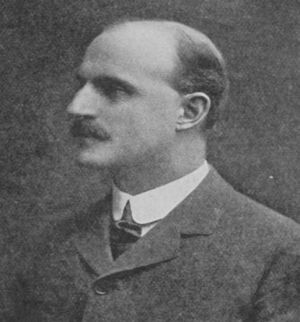Charles Doughty-Wylie facts for kids
Quick facts for kids
Charles Doughty-Wylie
|
|
|---|---|
 |
|
| Born | 23 July 1868 Theberton, Suffolk, England |
| Died | 26 April 1915 (aged 46) V Beach, Cape Helles, Gallipoli, Ottoman Empire |
| Allegiance | United Kingdom |
| Service/ |
British Army |
| Years of service | 1889–1915 |
| Rank | Lieutenant colonel |
| Unit | Somaliland Camel Corps The Royal Welch Fusiliers |
| Battles/wars | Mahdist War Chitral Expedition 1898 Occupation of Crete Second Boer War Boxer Rebellion Third Somaliland Expedition First World War |
| Awards | Victoria Cross Companion of the Order of the Bath Companion of the Order of St Michael and St George Mentioned in Despatches Order of the Medjidie (Ottoman Empire) |
Lieutenant Colonel Charles Hotham Montagu Doughty-Wylie (23 July 1868 – 26 April 1915) was a brave British Army officer. He received the Victoria Cross (VC), which is the highest award for courage in the face of the enemy. This award can be given to members of the British and Commonwealth armed forces. People often called him Richard.
Contents
Who Was Charles Doughty-Wylie?
Charles Doughty-Wylie was born in Theberton, England, in 1868. His father was Henry Montagu Doughty. Charles went to Winchester College and then to the Royal Military College, Sandhurst. He became an army officer in 1889.
Early Military Adventures
Doughty-Wylie had an exciting early military career. He took part in several campaigns:
- The Chitral Expedition in 1895.
- The 1898 Occupation of Crete.
- The Mahdist War in Sudan (1898–1899), where he worked with Lord Kitchener.
- The Second Boer War in South Africa.
- Helping to stop the Boxer Rebellion in China in 1900.
- Serving in Somaliland (1903–1904), where he led a unit called the Somaliland Camel Corps.
In 1904, he married Lilian Oimara Adams. He added her maiden name, Wylie, to his own, becoming Doughty-Wylie.
Heroism in the Ottoman Empire
Before World War I, Doughty-Wylie worked as a British representative in the Ottoman Empire (modern-day Turkey). He was the Acting British Vice-Consul in places like Konieh and Mersina.
Stopping Violence in Adana
In 1909, during a time of unrest called the Young Turk Revolution, violence broke out in Mersina. Doughty-Wylie bravely stepped in to stop it. He then went to Adana, where he convinced the local governor to give him a small group of soldiers. With these few men, he managed to bring order back to the city.
His wife, Lilian, also helped by turning part of their house into a hospital for injured people. Doughty-Wylie was shot in the arm while trying to prevent further attacks. For his brave actions, he received the Companion of the Order of St Michael and St George (CMG) award.
In 1913, the Ottoman Government gave him the Order of the Medjidie. This was to thank him for his valuable work with the British Red Cross hospitals during the Balkan Wars.
Bravery in the First World War
When the First World War began, Doughty-Wylie was a lieutenant colonel in The Royal Welch Fusiliers. Because he knew a lot about Turkey, he joined General Sir Ian Hamilton's team for the Gallipoli Campaign.
The Gallipoli Landing
On 26 April 1915, British forces landed at Cape Helles on the Gallipoli peninsula. The ship SS River Clyde brought many soldiers ashore. Lieutenant Colonel Doughty-Wylie and another officer, Captain Garth Neville Walford, led a daring attack. They pushed through the village of Sedd-el-Bahr to capture an old fort on a hill.
The enemy had strong defenses, but Doughty-Wylie and Walford showed incredible courage and leadership. Their attack was a great success. Sadly, both officers were killed during this victory. Doughty-Wylie was shot in the face by a sniper and died instantly.
A Unique Grave
Doughty-Wylie is buried near where he fell, just north of Sedd-el-Bahr. His grave is special because it is the only solitary British or Commonwealth war grave on the Gallipoli peninsula. The Turkish authorities moved all other foreign soldiers' graves to a different location, but they left his grave untouched.
His Victoria Cross medal is now on display at the Royal Welch Fusiliers Museum in Caernarfon Castle, Wales.
Family and Legacy
Doughty-Wylie's wife, Lilian, was a nurse. She was reportedly the only Allied woman to visit Gallipoli during the campaign. She went there in November 1915 to place a wreath on his grave. Lilian was also recognized for her own bravery and hard work as a matron at a hospital in Greece. She received the Royal Red Cross (First Class) award in 1919. Lilian passed away in Cyprus in 1961.
Remembering a Hero
Charles Doughty-Wylie is remembered in several ways:
- His name is on the war memorial outside St Peter's Church in Theberton, Suffolk.
- Inside the church, a stained glass window shows him as St George.
- A road in Theberton is named Doughty-Wylie Crescent.
- He is also named on the Winchester College War Cloister, a war memorial at his old school.
His story has even been told in films. Damian Lewis played him in the movie Queen of the Desert (2015).
 | Madam C. J. Walker |
 | Janet Emerson Bashen |
 | Annie Turnbo Malone |
 | Maggie L. Walker |

